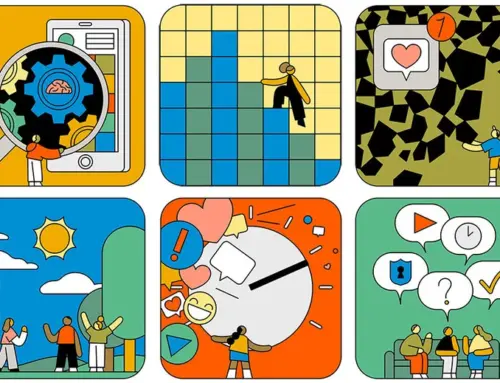This story originally appeared on Healthline.com
College is an exciting and challenging time in a young adult’s life. It’s a big transition for students to move away from home and start making independent decisions. Transitions often bring about stress, and coping can be difficult without the right tools. Some turn to food to ease the pain, so it’s not surprising that binge eating disorder (BED) is a growing problem among college students.
Here’s more about this common eating disorder, what you need to know, and how to get help.
Prevalence of BED Among College Students
In a study published by Eating and Weight Disorders, researchers surveyed 2,073 students on their eating habits at college. Their results revealed that 29 percent of the group had engaged in recent bingeing. Of these students, 73.8 percent were women. Other risk factors included higher body mass index, tobacco use, and exercising for weight loss. Another report by the Multi-Service Eating Disorders Association estimates that up to 40 percent of female college students have an eating disorder.
No matter how you count the statistics, college students are deeply impacted by BED and related issues. The reach might not be fully measured, either. According to the National Eating Disorders Association, men with eating disorders are less likely to seek treatment from a professional than their female counterparts.
Signs and Symptoms
Binge eating disorder is characterized by uncontrollable eating. It is usually tied to emotions like stress, fear, and anxiety. The volume of food consumed during bingeing episodes far exceeds what might normally be consumed during a similar, non-bingeing period of time. After eating, you might feel guilt or shame. More negative emotions cause the cycle to continue and spiral for months or longer.
The Walden Center shares these additional signs of BED:
- eating in secret
- hiding foods
- trying different diets
- eating continuously without feeling satisfied
- occasional purging (if linked with bulimia)
You can have binge eating disorder and be a normal weight, overweight, or underweight. Complications of BED range from weight gain to obesity-related diseases to additional eating disorders, like anorexia and bulimia.
When to Seek Help
Do you feel that your eating habits are out of control? Have you rapidly gained the “freshman 15”? These might be signs that you have BED. Episodes of emotional eating may hit you from time to time as you deal with the realities of living away from home, increased coursework, and tough exams. Bingeing, on the other hand, is more severe and can interfere with everyday life, making matters worse.
BED isn’t just about food. It may very well signal that there are other issues you are dealing with under the surface. Transitions are tough, but if you’re feeling depressed or anxious, other parts of your life, such as grades or relationships, might start to suffer. The sooner you get the help you need, the sooner you’ll be on the road to recovery.
Where to Find Help: Campus Resources
Thankfully, there are a variety of resources available to students dealing with eating disorders. Consider asking your resident advisor or a trusted friend to point you in the right direction. If you’d rather seek help on your own, check out the following locations on campus and in your community.
1. Student Health Center
You may want to have a physical examination to see if you have any health problems from bingeing. Weight gain is common with BED, but there are other medical issues that can arise and affect your overall well-being, such as thyroid diseases and metabolic disorders. Your health center may have a nutritionist on staff who can help you make better food choices, and give you tips on portion sizes and exercise routines. A doctor can also refer you to different resources, like counseling, to aid in your recovery.
2. Counseling Center
Colleges employ therapists or psychologists who are there to listen to and offer advice on any problems you’re facing. All sessions are completely confidential, so you need not worry that your deepest secrets will be shared with others. Some centers even offer therapy groups for students going through similar issues. Check with your counseling center’s office for more information.
3. Overeaters Anonymous
Many communities have chapters of Overeaters Anonymous. This group gives people with compulsive overeating a support system and plan for healing. There is no cost to attend sessions. Meetings are typically held once a week and individuals follow a 12-step approach. Though the name sounds specific to BED, people with all eating disorders are welcomed.
How to Cope with Binge Eating Disorder
There are some things you can do to help yourself overcome BED. Keeping a food diary is a great way to see what you’re eating and when. Be sure to record your mood and what you were thinking about when you had bingeing episodes. This information allows you to identify emotional triggers that you can then share with your doctor or counselor.
Since BED is often linked to stress, anxiety, depression, and other negative feelings, working on those root emotions is key. Engaging in relaxing activities can diffuse bad feelings and give you healthier outlets for your frustrations. Try things like regular walking, yoga, meditation, or trying out various hobbies and clubs on campus.
Stop the Cycle
It’s hard to admit when you have a problem, but you’re never alone. Many college students struggle with BED or other eating disorders. Your campus has resources set up to give you the help and guidance you need. All it takes is a phone call or quick visit to stop the cycle.
Reach Out for Help
We know finding binge eating disorder treatment can be tough. Walden is here for you. If you are concerned that you, or a loved one, may have an eating disorder, please reach out by completing the form on this page or email us at intake_coordinators@waldenbehavioralcare.com.






